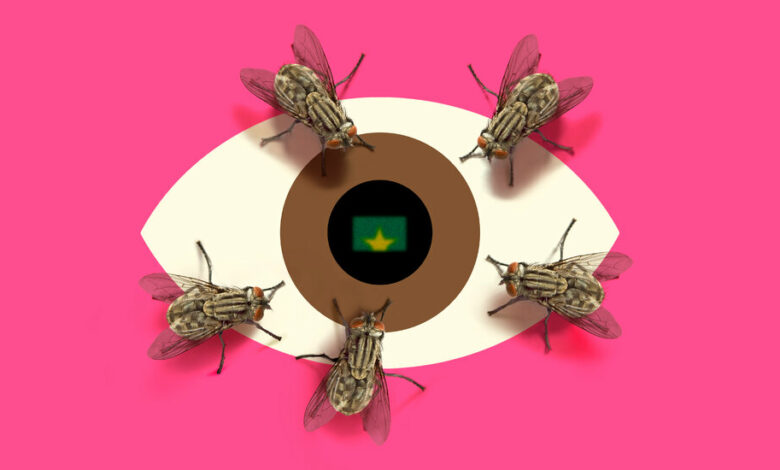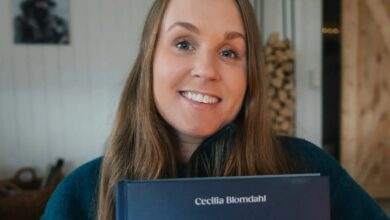Getting real about reality TV in ‘Cue the Sun!’

WATCH THE SUN! The Invention of Reality TVby Emily Nussbaum
There are times when Emily Nussbaum’s impassioned, beautifully told origin story, “Cue the Sun! The Invention of Reality TV,” feels like a kind of Trojan horse.
Her extended analysis begins with a simple proposition: an argument for why a genre that includes series like “The Dating Game” and “Alien Autopsy” deserves a history book in the first place.
For Nussbaum, industry terms like “unscripted series” don’t quite capture the entire pop culture landscape these shows engage with. Instead, she opts for the term “dirty documentary” to capture a broad swath, tracing a history that begins with the groundbreaking prank show “Candid Camera” in the 1940s and evolves into irreverent TV series like “The Gong Show.” and “America’s Funniest Home Videos,” eventually exploding into modern TV megahits like “Survivor,” “Big Brother” and “The Bachelor.”
With muscular prose and a meticulous eye for detail, Nussbaum, a staff writer for The New Yorker, traces how such shows united high and low art into a potent blend, ranging from “celebreality” soap operas to grand social experiments that explore romance, competition and investigate ethics. Their secret sauce: placing people in constructed situations to be entertaining, telegenic, revealing behavior – often due to conflict or shame.
“It is cinéma vérité filmmaking adulterated with commercial contaminants, like a street drug, to lower the price and heighten the effect,” Nussbaum writes. The result is “a powerful glimpse of human vulnerability, breaking taboos about what you were allowed to say or see.”
The book culminates with one of America’s most persistent rule breakers, Donald Trump, documenting how creator and executive producer Mark Burnett built NBC’s “The Apprentice” into a success that burnished the playboy tycoon’s reputation, resulting in “the most sinister outcome”.
“Take a failed tycoon who was deeply in debt and too risky for almost any bank to lend to,” Nussbaum writes, “a crude, impulsive, intolerant, repeatedly bankrupt ignoramus, a sexual predator so reckless that he openly harassed women on his show, and then find a way to make him seem attractive enough to get elected president of the United States? That was a coup, even if no one could brag about it.”
But “Cue the Sun!” does more than just challenge the pearl-clutching critics, who are too often caught between behaving like humorless scolds and unfairly ignoring the meaning of the genre. Backed by more than 300 interviews, Nussbaum chronicles reality TV through the eyes of the people who made it possible, offering lucid accounts of how exploitative and dangerous such shows can be — from addressing “bone-deep sexism” on “The Bachelor” to noting how a “Survivor” producer worried they had accidentally fed the cast deadly parasites during a grub-eating contest.
Perhaps the most notable story comes from Bill Pruitt, a former producer on “The Apprentice,” who says Trump used a racial slur when referring to Kwame Jackson, a black man among the two finalists in the show’s first season. (Pruitt recently wrote about the incident for Slate.) A Trump spokesman has denied the story, and the book quotes others who say they never heard the slur. Bill Rancic, a white Chicagoan, was ultimately chosen as the winner.
We also meet influential behind-the-scenes impresarios like married filmmakers Alan and Susan Raymond – whose devotion to cinéma vérité techniques provided the basis for the groundbreaking 1973 PBS series “An American Family” – and the cheerfully energetic producer Mike Darnell, who oversaw the rise of reality television on the Fox network with shows like “World’s Scariest Police Chases,” “American Idol” and “Who Wants to Marry a Multi-Millionaire?” (not to mention its quasi-parody sequel “Joe Millionaire”).
Nussbaum worked for years, securing interviews with now-deceased, groundbreaking figures like “Cops” co-creator John Langley and “An American Family” wife and mother Pat Loud. She also brought in key people who don’t often give in-depth interviews, like “Bachelor” creator Mike Fleiss, who sees Trump’s post-“Apprentice” rise as a stain on the genre.
“All this talk about the decline of Western civilization and the sign of the apocalypse?” says Fleiss. “It turned out to be true.”
But Nussbaum reveals how ruthless choices and the growing demand to deliver buzzworthy moments increasingly shaped what ultimately aired. The “Bachelor” team tapped into the mental health issues of fragile participants. (“Unstable and beautiful? That’s gold,” crows a casting director.) Harvey Weinstein used “Project Runway” as a “hunting ground” for victims of harassment. Three of the original “Queer Eye for the Straight Guy” pundits weren’t entirely public about their families before the show debuted.
One area where Nussbaum treads carefully is reality TV’s dicey relationship with race. She mentions the issues that nonwhite cast members have faced on several shows, including “Survivor” and “The Real World,” but it rarely goes into much detail, which is disappointing. And by essentially closing with Trump’s time on “The Apprentice,” which ended after he announced his presidential campaign in 2015, the book leaves out Chris Harrison’s 2021 departure as host of “The Bachelor,” as well as details about Fleiss’ decision to leave the franchise two years later, following an internal investigation into “allegations of racial discrimination.”
In 2016, Nussbaum won a Pulitzer Prize as The New Yorker’s television critic; here she combines her talents for sharp analysis and reportage, but remains reluctant to draw definitive conclusions about the genre’s ultimate impact.
As someone who has been following reality TV since the late 1990s, I realize how difficult it can be to balance respect for its popularity with much-needed truth-telling about its toxic impact on media, politics and society. Nussbaum walks that line deftly, writing a book that may best reach those who enjoy reality TV and who might be put off by a more brutally critical book.
In one passage, she notes that many fans have long since accepted that what they see on these shows can be fake. “For these viewers, there was no controversy; any doubts about the medium had long since disappeared,” she concludes. “The most successful reality show had it all: a tantalizing flash of the authentic, framed by the dark glitter of the fake, like a dash of salt in dark chocolate. No flavor was harder to resist.”
The title of the book is taken from “The Truman Show”, a movie from 1998 starring Jim Carrey as a man unknowingly living inside a TV show; the show’s creator shouts “cue the sun” to turn on the lights in his fabricated world. Nussbaum’s book expertly charts how the real-life versions of Truman’s show have influenced the course of television and society. In the process, we are all forced to confront both the lure and the long shadows cast by their blinding light.
LOOK AT THE SUN!: The invention of reality TV | By Emily Nussbaum | Random house | 464 pages. | $30




